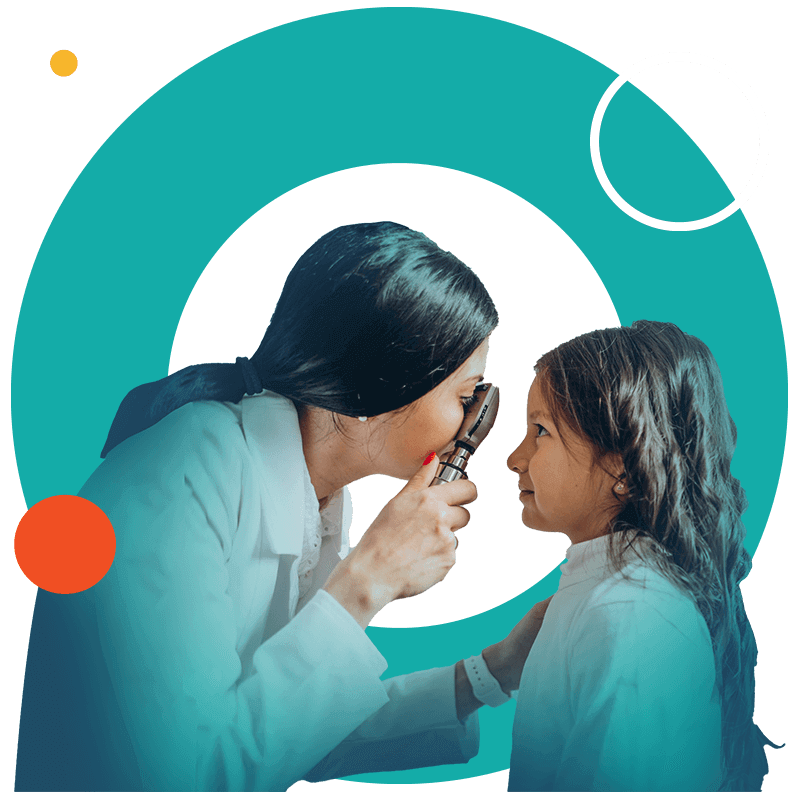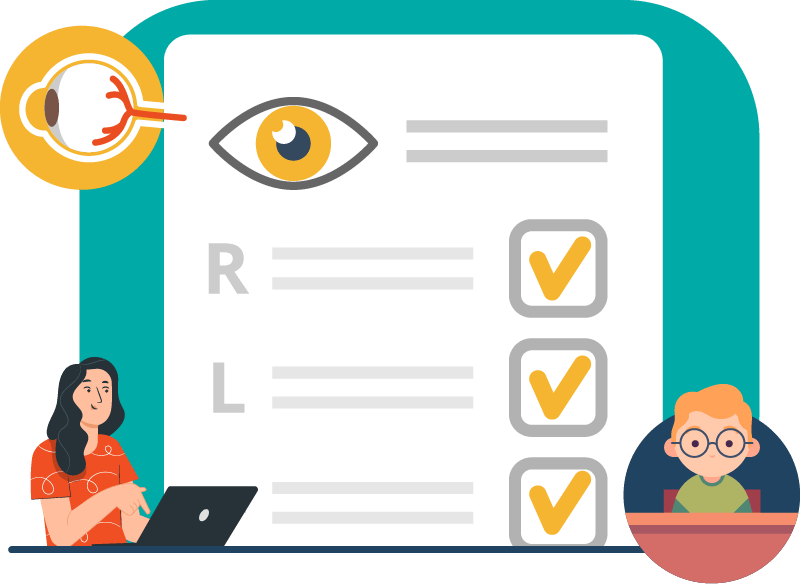At the end of your eye exam, the optometrist will explain to you all of the findings and any questions that you have will be addressed. You will be informed if you have nearsightedness, farsightedness, and/ or an astigmatism and the optometrist will discuss with you options for glasses and/ or contact lenses.
If any eye drops or medical prescriptions are needed, the optometrist will provide you with a prescription and explanation. If more testing is needed, it will be discussed with you when and where is the best time and place to do that.

















